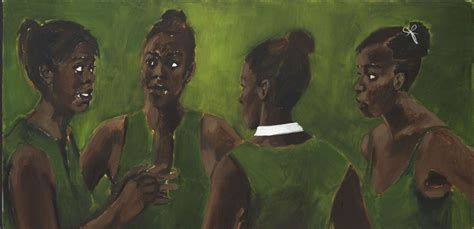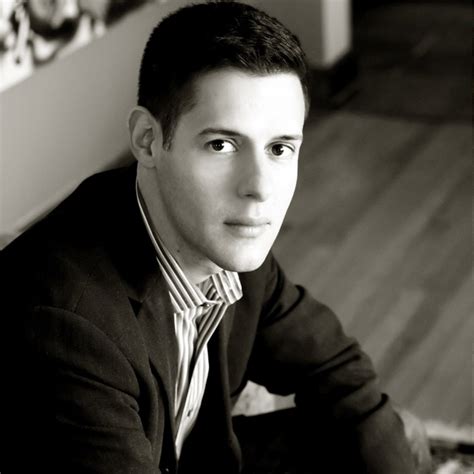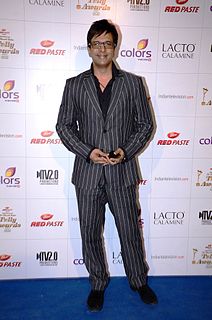A Quote by John Kleinig
As for the ethics, law, and politics relationship, there has always been a tension for me as I try to keep them distinct while recognizing their interactions. A valuable contribution to my thinking there and elsewhere was Ellen Meiksins Wood's Mind and Politics, which reinforced for me the ways in which seemingly disparate philosophical endeavors were/are interconnected, and although I have tended to give a certain priority to ethical considerations as part of practical reasoning, I am reminded often enough that this position makes some contentious presumptions .
Quote Topics
Although
Always
Am
Been
Certain
Contentious
Contribution
Distinct
Elsewhere
Endeavors
Enough
Ethical
Ethics
Give
Interactions
Interconnected
Keep
Law
Makes
Me
Mind
Often
Part
Philosophical
Politics
Position
Practical
Priority
Reasoning
Recognizing
Relationship
Reminded
Seemingly
Some
Tension
Them
Thinking
Try
Valuable
Ways
Were
Which
While
Wood
Related Quotes
I believe, indeed, that overemphasis on the purely intellectual attitude, often directed solely to the practical and factual, in our education, has led directly to the impairment of ethical values. I am not thinking so much of the dangers with which technical progress has directly confronted mankind, as of the stifling of mutual human considerations by a 'matter-of-fact' habit of thought which has come to lie like a killing frost upon human relations. Without 'ethical culture' there is no salvation for humanity.
Judo has been part of Japanese culture for a long time. It makes sense to me that this sport, which is both athletic and philosophical, was created in Japan. It is based on respect for the partner and for our elders as our teachers, which is very important and makes a strong, positive contribution to human relationships, and not only in sports. I am happy that life brought me to this wonderful sport as a child. It is like my first love.
It's hard to pin down what the politics would be, in a way. For me the politics are very visual and felt, thought, seen, but not necessarily put into words. The confusions and conditions within the work are the politics. The fact that a lot of the time the first thing people want to talk to me about is the racial angle, which is a part of the work and I am happy to talk about it, but it's not necessarily the first thing on my mind when I am making something.
Faithiest resonated with me in many ways-not only because, like Chris, I am a gay former-Christian atheist who still thinks of my religious neighbors as fellow truth-seekers-but also because I deeply appreciated the book's nuanced approach to contentious issues. This is an important contribution to current debates, one which should be read not only for its valuable content but also for its exemplary tone: warm, engaging, optimistic, and humble.
Philosophy is a necessary activity because we, all of us, take a great number of things for granted, and many of these assumptions are of a philosophical character; we act on them in private life, in politics, in our work, and in every other sphere of our lives -- but while some of these assumptions are no doubt true, it is likely, that more are false and some are harmful. So the critical examination of our presuppositions -- which is a philosophical activity -- is morally as well as intellectually important.
In early comics, you see the amazing awkwardness and bizarre reasoning in the storyline, and it's because comics hadn't really been invented yet. There was no format for them to follow. They were just making it up. So I try to incorporate that kind of awkwardness in my comics quite frequently, which is odd. In some ways, I can't be as awkward as I'd like. But I do think that's one way in which my comics are unusual, because I will try to make the artwork look bad, occasionally.
Here, the certain temple rule, this seems to me to have a certain responsibility to look after the well-being of society and look after Buddhism and culture. I consider these part of the practice of spirituality. There is no competition between spiritual practice and party politics. That is outdated. We already, since 2001, have elected political position. My position is semi-retired. I am looking forward to complete retirement.
Now the same mystery which often veils from our eyes the reason for a catastrophe envelops just as frequently, when love is in question, the suddenness of certain happy solutions, such as had been brought to me by Gilberte's letter. Happy, or at least seemingly happy, for there are few that can really be happy when we are dealing with a sentiment of such a kind that any satisfaction we can give it does no more, as a rule, than dislodge some pain. And yet sometimes a respite is granted us, and we have for a little while the illusion of being healed.































